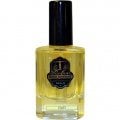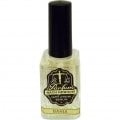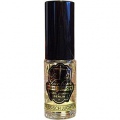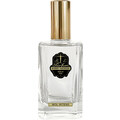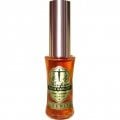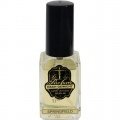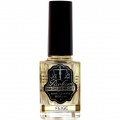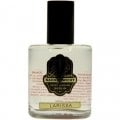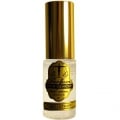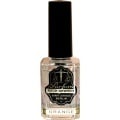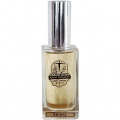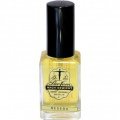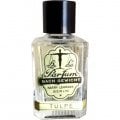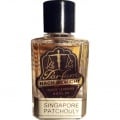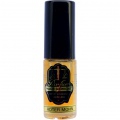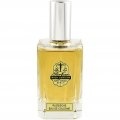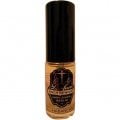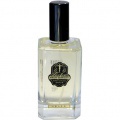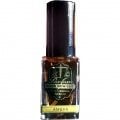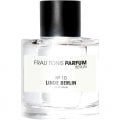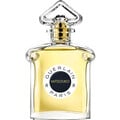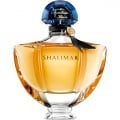04/28/2020

Harielle
12 Reviews
Translated
Show original

Harielle
Top Review
19
Give a kiss to Lydia
A distraction from real life, an escape from reality, that is what publisher Ernst Rowohlt wanted writer Kurt Tucholsky to do for his readers in a fictional correspondence. Tucholsky fulfilled the publisher's wish for "a light, summery novel, perhaps a love story" and wrote one of his greatest successes with the public: "Schloss Gripsholm. A summer story". As onlookers we travel to southern Sweden with first-person narrator Peter, called Daddy, and his girlfriend Lydia, called Princess. The carefree summer resort peppered with banter - partly on Missingchen* - is enriched by interesting visitors, namely friend Karlchen and the erotically attractive girlfriend Billie. The cheerful idyll is torn apart when the couple meets little Ada, who lives in a nearby children's home and is exposed to the reprisals of the director. Lydia and Peter take care of the child and organize that he can return to his (so far unsuspecting) mother in Switzerland.
Hardly any other fragrance embodies the relaxed idleness in "Schloss Gripsholm" for me as much as "Lindenblüte" by Harry Lehmann. The (supposed) simplicity of this fragrance paired with the aesthetics and mood of the Weimar period, which even resonates in the relaxed and summery atmosphere of Tucholsky's story, form a harmonious unity for me. The fact that both the brand Harry Lehmann and the two main characters Peter and Lydia come from Berlin (Lydia originally comes from Rostock, as we soon learn - keyword "Missingsch"), which is also the home of the legendary street "Unter den Linden", may strengthen this chain of associations for me.
How does "Linden Blossom" by Harry Lehmann smell?
Well, quite simply, after Linden Blossom - you wouldn't have guessed that now, would you? This could indeed become a very short text, as I have little to add verbally to this wonderful authentic monofloral fragrance (although the term monofloral should be used with caution).
But I will try to capture my scent impressions with Tucholsky's help:
A rich green rustling of leaves determines the start of the fragrance. I see Lydia and Peter cycling along an avenue in front of my inner eye on a still fresh summer morning, there is still dew on the meadow and Lydia has goose bumps on her bare legs.
Surrounded by the wonderful flowery, slightly sweet scent of lime blossoms, the two of them take a break in the late morning and lie in the grass. They chat and tease each other. Bees are buzzing peacefully, not far away farmers have piled up hay to dry, whose light scent mixes with that of the lime blossoms.
Lydia has taken off her cardigan and begins with "Daddy" chewing on a blade of grass, the book's omnipresent exuberant language games about names and identities, which the narrator lovingly and ironically describes as "agreement on the basic questions of existence" without ascribing a mysterious, deeper meaning to them. This corresponds to the humorous, witty basic tenor of the story. The harmony and lightness is apostrophized by the obligatory "Give a kiss to Lydia"
On the way home to Gripsholm Castle, the sun is high in the sky, the air is warm and almost a little muggy. The light summer wind blows pollen and delicate honey-sweet aromas across. The "Princess" and her "Daddy" feel pleasantly tired of sun, air - and love.
I hope that I could give you a useful impression of this wonderful lime blossom scent with this little sketch - and maybe make you want to read Tucholsky.
Of course, there was a discussion about the extent to which Kurt Tucholsky's narrative has autobiographical traits, which he denied, by the way. In any case, the dedication "For IA 47 407" referred little discreetly to the journalist Lisa Matthias (whose license plate number read accordingly) with whom he had a relationship from 1927 to 1930 and with whom he demonstrably spent holidays in Sweden. In 1929 Kurt Tucholsky emigrated to Sweden, where he lived until his suicide in 1935.
In any case, it's nice to get a little Gripsholm feeling out of the bottle when needed to "unwind" - and unlike Lydia and Kurt, this romance doesn't have to end after one summer. Their time together in Sweden is limited, although for a brief moment they even think about staying there, but they realize: "No, that's not it. If you move, the worries follow. If you're there for four weeks, you laugh about everything - even the little inconveniences. They don't concern you in the least. But if you're there forever, then you have to participate."
*"Missingsch is what comes out when a Low German wants to speak High German. He crawls up the polished stairs of German grammar and slides all nose long back into his beloved Low German. Lydia is from Rostock, and she masters this idiom to perfection."
Hardly any other fragrance embodies the relaxed idleness in "Schloss Gripsholm" for me as much as "Lindenblüte" by Harry Lehmann. The (supposed) simplicity of this fragrance paired with the aesthetics and mood of the Weimar period, which even resonates in the relaxed and summery atmosphere of Tucholsky's story, form a harmonious unity for me. The fact that both the brand Harry Lehmann and the two main characters Peter and Lydia come from Berlin (Lydia originally comes from Rostock, as we soon learn - keyword "Missingsch"), which is also the home of the legendary street "Unter den Linden", may strengthen this chain of associations for me.
How does "Linden Blossom" by Harry Lehmann smell?
Well, quite simply, after Linden Blossom - you wouldn't have guessed that now, would you? This could indeed become a very short text, as I have little to add verbally to this wonderful authentic monofloral fragrance (although the term monofloral should be used with caution).
But I will try to capture my scent impressions with Tucholsky's help:
A rich green rustling of leaves determines the start of the fragrance. I see Lydia and Peter cycling along an avenue in front of my inner eye on a still fresh summer morning, there is still dew on the meadow and Lydia has goose bumps on her bare legs.
Surrounded by the wonderful flowery, slightly sweet scent of lime blossoms, the two of them take a break in the late morning and lie in the grass. They chat and tease each other. Bees are buzzing peacefully, not far away farmers have piled up hay to dry, whose light scent mixes with that of the lime blossoms.
Lydia has taken off her cardigan and begins with "Daddy" chewing on a blade of grass, the book's omnipresent exuberant language games about names and identities, which the narrator lovingly and ironically describes as "agreement on the basic questions of existence" without ascribing a mysterious, deeper meaning to them. This corresponds to the humorous, witty basic tenor of the story. The harmony and lightness is apostrophized by the obligatory "Give a kiss to Lydia"
On the way home to Gripsholm Castle, the sun is high in the sky, the air is warm and almost a little muggy. The light summer wind blows pollen and delicate honey-sweet aromas across. The "Princess" and her "Daddy" feel pleasantly tired of sun, air - and love.
I hope that I could give you a useful impression of this wonderful lime blossom scent with this little sketch - and maybe make you want to read Tucholsky.
Of course, there was a discussion about the extent to which Kurt Tucholsky's narrative has autobiographical traits, which he denied, by the way. In any case, the dedication "For IA 47 407" referred little discreetly to the journalist Lisa Matthias (whose license plate number read accordingly) with whom he had a relationship from 1927 to 1930 and with whom he demonstrably spent holidays in Sweden. In 1929 Kurt Tucholsky emigrated to Sweden, where he lived until his suicide in 1935.
In any case, it's nice to get a little Gripsholm feeling out of the bottle when needed to "unwind" - and unlike Lydia and Kurt, this romance doesn't have to end after one summer. Their time together in Sweden is limited, although for a brief moment they even think about staying there, but they realize: "No, that's not it. If you move, the worries follow. If you're there for four weeks, you laugh about everything - even the little inconveniences. They don't concern you in the least. But if you're there forever, then you have to participate."
*"Missingsch is what comes out when a Low German wants to speak High German. He crawls up the polished stairs of German grammar and slides all nose long back into his beloved Low German. Lydia is from Rostock, and she masters this idiom to perfection."
15 Comments









 Fantasmarg
Fantasmarg